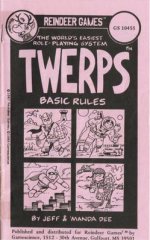le Redoutable
Ich bin El Glouglou :)
thanks for the pre-historic inputI don't believe there was any "splitting" going on. It's a mistake to even think of it that way.
When D&D was first published, there were three classes — fighting man, magic-user, and cleric — and the game needed three separate "stats" to serve as the prime requisites for those classes, to tell you how quickly or slowly you'd gain XP when playing as that class. Hence Strength, Intelligence, and Wisdom were added to the game.
The other three stats are the ones that actually affected your character in-game: Constitution adjusts hit points, Dexterity adjusts accuracy with missiles, and Charisma adjusts the number and loyalty of your followers. (While none of us can really know the thought process that Gary Gygax put into this, it certainly is elegant to have the three prime requisite stats "mirrored" by three "capability" stats.)
Now, there are exceptions to this clean division. Apart from magic-user XP, Intelligence also affected how many languages you spoke; and the notes for Strength indicated that it "could" be used to determine whether a character successfully performed some feat of physical prowess. But by the letter of the rules, Strength and Wisdom had no effect on a character beyond adjusting fighter or cleric XP. (Things like melee combat adjustments and magic saving throw adjustments came along later — way later in the case of Wisdom.)
That said, all three prime requisites could still have an impact on your advancement, if your scores were high enough. Fighters originally got to treat every 2 points of Int above 9 and every 3 points of Wis above 9 as +1 to their Str; clerics similarly treated every 2 points of Int above 9 and every 3 points of Str above 9 as +1 to their Wis; whereas mages derived no benefit at all from Str but got to treat every 2 points of Wis above 9 as +1 to their Int — all for XP adjusting purposes only, of course.
for my part I only follow Ad&d ( 1,1UA,2,2PO )




